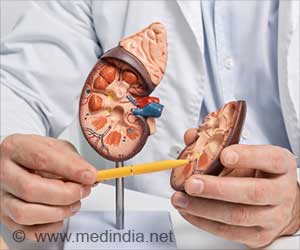Australian researchers have devised a new tool called Actiwatch to help collect information on sleep quality, quantity and variability, physical activity and daytime activity patterns.

The Actiwatches have a highly-sensitive motion detector—known as an accelerometer—to measure activity levels, says Jennifer Girschik of the School of Population Health, University of Western Australia.
“These are then processed by a computer algorithm that can infer being sleep and awake from the activity level,” she says.
“Because the watches measure sleep indirectly through activity levels, it is possible to ‘trick’ the watches. If people stay very still while awake the watch may interpret this as sleep, and similarly, if they are highly active during sleep the watch may interpret this as being awake.
“However, they are surprisingly accurate. We also ask people to fill out sleep diaries so we can double-check on sleep–wake times and whether people took naps that might affect the output.”
The “gold standard” for measuring sleep is a polysomnogram (PSG), although it requires people to spend a couple of nights in a sleep lab.
Advertisement
“As you can imagine, PSG is labour intensive, cumbersome and expensive and unsuitable if you need to study large numbers of people,” Miss Girschik says.
Advertisement
Miss Girschik said while the short-term effects of poor sleep quality are well-understood, the longer term effects have not been studied extensively.
“Using the Actiwatches, we will be able to improve the understanding we have of sleep habits in the general community and further investigate possible relationships,” Miss Girschik says.
“The next study will be on shift workers to investigate their sleep and activity patterns and monitor their exposure to light at different times of the day.”
The Centre for Sleep Science was re-launched at the varsity earlier this year after a $1 million upgrade providing new scope for research into sleep apnoea, insomnia, and other sleeping disorders.
There is evidence to suggest a link between poor sleep quality and a range of long-term health effects, including an increased risk of obesity, diabetes, cardiovascular disease and cancer—although nothing has been conclusively established yet.
Source-Medindia














